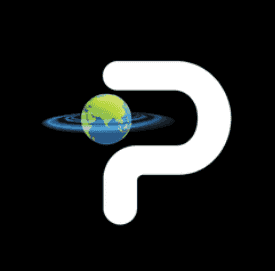Forget crystal balls and fortune tellers. The future of healthcare isn't mystical. it's mathematical. It's built on algorithms, powered by data, and driven by the relentless pursuit of early disease detection. We're not just talking about incremental improvements; we're witnessing a paradigm shift, a revolution fueled by the quiet, powerful force of Artificial Intelligence.
Imagine a doctor who doesn't just look at an X-ray, but listens to the subtle symphony of data surrounding it. AI, in its brilliance, does precisely that. We're moving beyond single-modality diagnostics. Think of it as a multi-sensory experience for healthcare.
- Genomic Whispers: AI can analyze vast genomic datasets, identifying subtle patterns linked to predisposition for diseases like cancer or Alzheimer's, years before symptoms manifest. It's like listening to the faintest whisper of a genetic mutation, amplified by computational power.
- The Language of Images: AI-powered image analysis isn't just about spotting tumors. It's about deciphering the language of cellular structures, detecting microscopic changes in retinal scans that hint at neurological disorders, or analyzing skin lesions with an accuracy that surpasses the human eye.
- The Pulse of Wearables: Your smartwatch isn't just a fitness tracker; it's a mobile health monitor. AI algorithms can analyze the continuous stream of data – heart rate variability, sleep patterns, activity levels – and detect anomalies that signal underlying health issues.
- The Voice of Biomarkers: AI can analyze the complex interplay of biomarkers in blood, urine, or saliva, identifying unique signatures that indicate the onset of diseases. It's like deciphering a secret code written in the language of molecules.
- The Power of Textual Data: AI NLP algorithms are analyzing doctor's notes, medical records, and even social media posts to find connections and patterns that humans might miss, creating a holistic view of patient health.
Early detection isn't just about finding diseases earlier; it's about predicting them before they even emerge. AI's predictive power is transforming healthcare from reactive to proactive.
- Risk Stratification Redefined: AI algorithms can analyze a patient's medical history, lifestyle, and genetic data to generate personalized risk scores for various diseases. This allows for targeted interventions and preventive measures, minimizing the impact of potential health issues.
- Personalized Medicine at Scale: AI is enabling the development of personalized treatment plans based on individual patient characteristics. By analyzing vast datasets, AI can identify the most effective treatments for specific patient profiles, optimizing outcomes and minimizing side effects.
- The Future of Clinical Trials: AI can accelerate the drug discovery process by identifying promising drug candidates and predicting their efficacy and safety. It can also optimize clinical trial design, improving patient recruitment and data analysis.
- The Virtual Physician's Assistant: AI-powered chatbots and virtual assistants can provide personalized health advice, monitor patient progress, and even schedule appointments. This frees up healthcare professionals to focus on more complex tasks, improving efficiency and accessibility.
As we embrace the power of AI in healthcare, we must also address the ethical considerations that come with it.
- Data Privacy and Security: Protecting patient data is paramount. We need robust security measures and ethical guidelines to ensure that sensitive health information is handled responsibly.
- Algorithmic Bias: AI algorithms are trained on data, and if that data is biased, the algorithms will be too. We need to ensure that AI systems are fair and equitable, and that they don't perpetuate existing health disparities.
- Transparency and Explainability: We need to understand how AI algorithms make decisions. This requires transparency in the development and deployment of AI systems, and explainability in their outputs.
- The Human Touch: AI is a powerful tool, but it's not a replacement for human clinicians. We need to find the right balance between AI and human expertise, ensuring that AI enhances, rather than replaces, the human touch in healthcare.
The AI revolution in early disease detection is not just a technological advancement; it's a human imperative. It's about empowering individuals to take control of their health, preventing diseases before they take hold, and building a future where everyone has the opportunity to live a long and healthy life.
This isn't about replacing doctors; it's about augmenting their abilities, giving them a powerful tool to see beyond the visible, to hear the whispers of disease before they become shouts. It's about creating a world where the algorithmic oracle guides us towards a healthier tomorrow.
Join the Conversation:
What are your thoughts on the role of AI in early disease detection? Share your insights and questions in the comments below. Let's explore the future of healthcare together.




